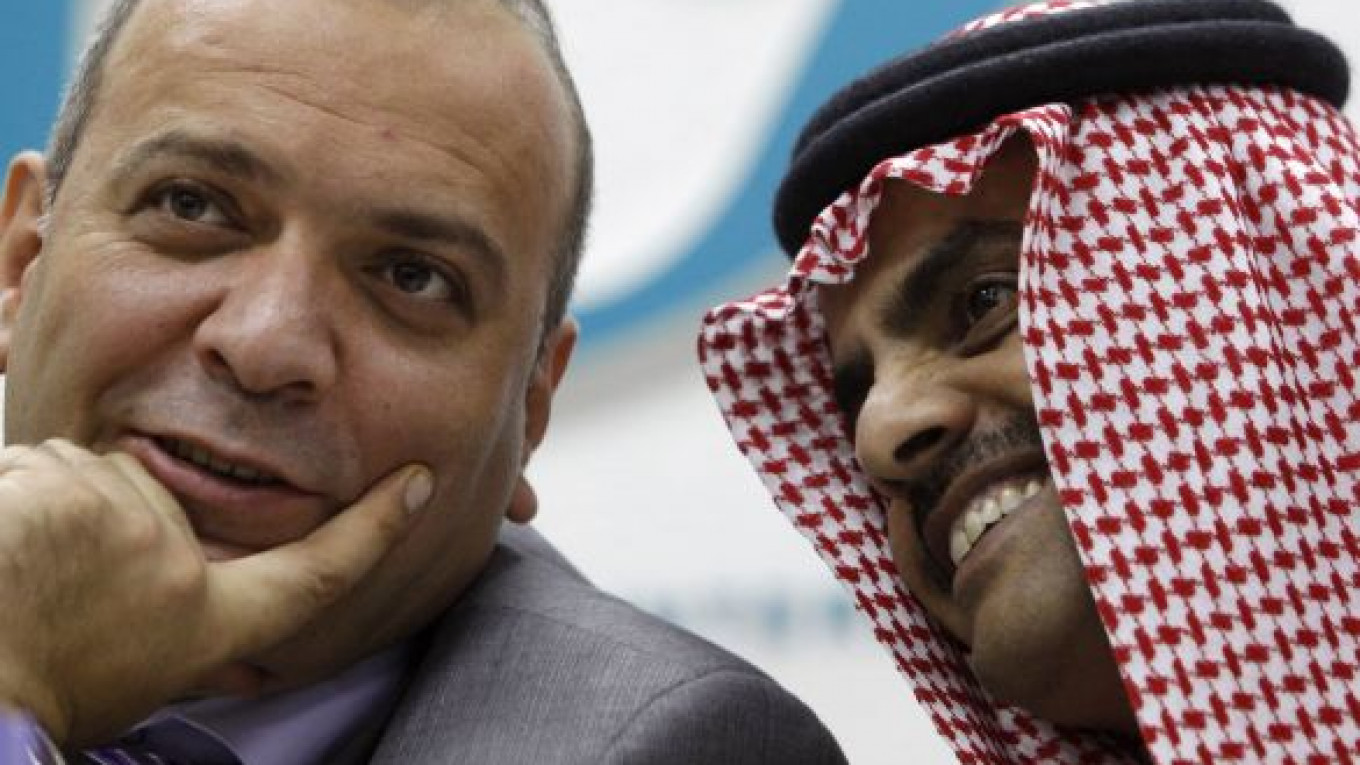The Syrian opposition urged Moscow to abandon its backing for Syrian President Bashar Assad as France stepped up pressure on Russia to support a UN resolution against the regime.
"The development of the Russian position is slower than we hope," opposition delegate Ammar Qurabi said Friday in Moscow, where he met with Mikhail Margelov, the presidential envoy to the region. "Events on the ground are faster than we hope."
The United Nations estimates that about 2,000 civilians have been killed since protests began in March, including at least seven on Friday.
Russia warned last week that any efforts to overthrow Assad by military force would unleash chaos in the Middle East, saying it categorically opposes external intervention. Russia, whose only Middle Eastern military facility is in Syria, an ally since the Soviet era, has rejected U.S. and European calls for Assad to step down.
President Dmitry Medvedev said Thursday that Russia might back a "variety of approaches" on Syria as long as the measures target both sides of the conflict, which he said includes "extremists" and "terrorists" among protesters.
"They should not be based on a unilateral condemnation of the government," Medvedev said.
The European Union and United States have announced sanctions against Syria including bans on oil imports.
French Foreign Minister Alain Juppe on Sunday increased pressure on Russia to support a UN Security Council resolution against the Syrian regime, describing the lack of such a clear statement of condemnation as a "scandal."
"We think the regime has lost its legitimacy, that it's too late to implement a program of reform," Juppe said. "Now we should adopt in New York the resolution condemning the violence and supporting the dialogue with the opposition."
(Bloomberg, AP, MT)
A Message from The Moscow Times:
Dear readers,
We are facing unprecedented challenges. Russia's Prosecutor General's Office has designated The Moscow Times as an "undesirable" organization, criminalizing our work and putting our staff at risk of prosecution. This follows our earlier unjust labeling as a "foreign agent."
These actions are direct attempts to silence independent journalism in Russia. The authorities claim our work "discredits the decisions of the Russian leadership." We see things differently: we strive to provide accurate, unbiased reporting on Russia.
We, the journalists of The Moscow Times, refuse to be silenced. But to continue our work, we need your help.
Your support, no matter how small, makes a world of difference. If you can, please support us monthly starting from just $2. It's quick to set up, and every contribution makes a significant impact.
By supporting The Moscow Times, you're defending open, independent journalism in the face of repression. Thank you for standing with us.
Remind me later.






